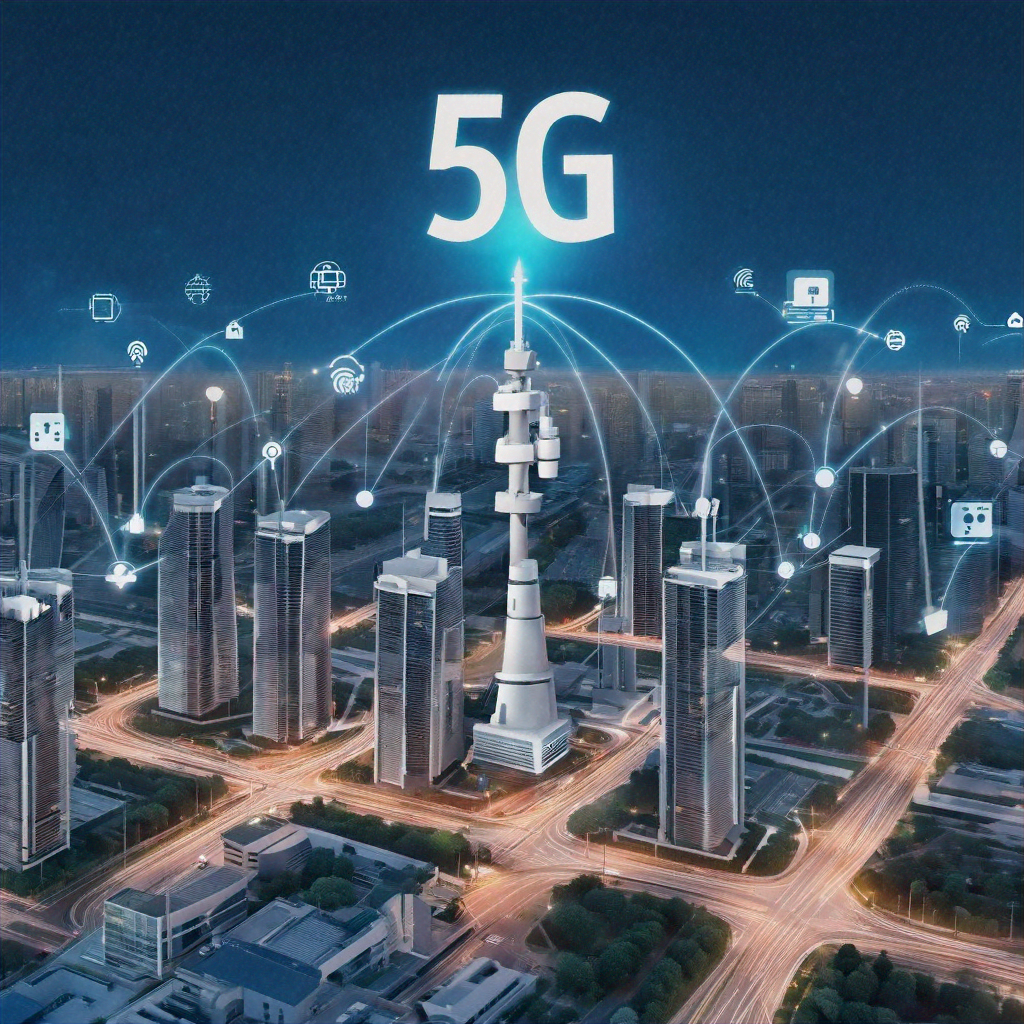
How 5G is Transforming Smart Cities: A Comprehensive Guide
The advent of 5G technology has revolutionized the way cities operate, transforming them into smart, efficient, and sustainable hubs. With its lightning-fast speeds, low latency, and massive connectivity capabilities, 5G is enabling cities to become more livable, workable, and sustainable. In this blog post, we will delve into the ways 5G is transforming smart cities, exploring its impact on various aspects of urban life, from transportation and energy management to public safety and healthcare.
1. Enhanced Transportation Systems
5G is revolutionizing transportation systems in smart cities by enabling the widespread adoption of intelligent transportation systems (ITS). With 5G, cities can deploy a network of sensors, cameras, and other IoT devices to monitor and manage traffic flow, reducing congestion and improving air quality. For instance, the city of Barcelona has implemented a smart traffic management system that uses 5G-enabled sensors to optimize traffic signal timing, reducing congestion by 30%.
Moreover, 5G is enabling the development of autonomous vehicles, which are expected to transform the transportation landscape in smart cities. With 5G, autonomous vehicles can communicate with each other and the infrastructure in real time, ensuring safe and efficient navigation. Companies like Waymo and Uber are already testing autonomous vehicles in cities like Phoenix and San Francisco, leveraging 5G networks to enable seamless communication.
2. Efficient Energy Management
5G is playing a crucial role in optimizing energy management in smart cities. With the help of 5G-enabled smart grids, cities can monitor and manage energy consumption in real time, reducing energy waste and improving overall efficiency. For example, the city of Copenhagen has implemented a smart grid system that uses 5G-enabled sensors to monitor energy consumption, reducing energy waste by 20%.
Furthermore, 5G is enabling the widespread adoption of renewable energy sources, such as solar and wind power. With 5G, cities can monitor and manage renewable energy sources in real time, ensuring a stable and efficient energy supply. Companies like Siemens and GE are already working with cities to develop 5G-enabled renewable energy systems.
3. Improved Public Safety
5G is transforming public safety in smart cities by enabling the deployment of advanced surveillance systems and emergency response networks. With 5G, cities can deploy a network of cameras and sensors to monitor public spaces, detecting and responding to emergencies in real time. For instance, the city of Chicago has implemented a smart surveillance system that uses 5G-enabled cameras to monitor public spaces, reducing crime by 25%.
Moreover, 5G is enabling the development of advanced emergency response systems, such as smart 911 services. With 5G, emergency responders can receive critical information, such as location and medical history, in real-time, ensuring faster and more effective response times. Companies like AT&T and Verizon are already working with cities to develop 5G-enabled emergency response systems.
4. Enhanced Healthcare Services
5G is revolutionizing healthcare services in smart cities by enabling the widespread adoption of telemedicine and remote healthcare services. With 5G, patients can receive medical consultations and treatment remotely, reducing the need for hospital visits and improving overall healthcare outcomes. For example, the city of Singapore has implemented a telemedicine system that uses 5G-enabled video conferencing to provide medical consultations, reducing hospital visits by 30%.
Furthermore, 5G is enabling the development of advanced healthcare analytics, which can help cities identify and respond to public health crises more effectively. With 5G, cities can collect and analyze vast amounts of health data, identifying patterns and trends that can inform public health policy. Companies like IBM and Microsoft are already working with cities to develop 5G-enabled healthcare analytics systems.
5. Increased Economic Opportunities
5G is transforming the economic landscape of smart cities by enabling the development of new industries and business models. With 5G, cities can attract businesses and entrepreneurs that rely on high-speed, low-latency connectivity, such as tech startups and e-commerce companies. For instance, the city of San Francisco has established a 5G-enabled innovation hub, attracting companies like Uber and Airbnb.
Moreover, 5G is enabling the development of smart city infrastructure, such as smart buildings and smart homes. With 5G, cities can deploy a network of sensors and devices to monitor and manage energy consumption, water usage, and waste management, reducing costs and improving overall efficiency. Companies like Siemens and GE are already working with cities to develop 5G-enabled smart city infrastructure.
Cities with Successful 5G Smart City Initiatives
Several cities around the world have successfully implemented 5G smart city initiatives, leveraging the latest technologies to improve the quality of life for their citizens. Here are some examples:
1. London
London has gained the number one spot as it hosts several 5G towers, EV charging stations, and green infrastructure. The city has established a strong foundation for its smart city initiatives, making it an example for other cities to follow.
2. Singapore
Singapore has consistently topped the list as one of the world’s smartest cities in the Smart City Index. The city-state’s planned eco-smart city, Tengah, aims to use artificial intelligence to support smart energy management.
3. Zurich
Zurich has been ranked as one of the top smart cities in the world, alongside Singapore and Oslo. The city has implemented various smart city initiatives, including the use of 5G technology to improve public services and enhance the quality of life for its citizens.
4. Helsinki
Helsinki has been recognized as one of the world’s smartest cities, with a strong focus on innovation and sustainability. The city has implemented various smart city initiatives, including the use of 5G technology to improve public transportation and enhance the overall quality of life for its citizens.
5. Oslo
Oslo has been ranked as one of the top smart cities in the world, alongside Zurich and Singapore. The city has implemented various smart city initiatives, including the use of 5G technology to improve public services and enhance the quality of life for its citizens.
These cities have demonstrated the potential of 5G technology in improving the quality of life for citizens, enhancing public services, and driving innovation and sustainability.
Conclusion
In conclusion, 5G is transforming smart cities in numerous ways, from enhancing transportation systems and energy management to improving public safety and healthcare services. With its lightning-fast speeds, low latency, and massive connectivity capabilities, 5G is enabling cities to become more livable, workable, and sustainable. As cities continue to adopt 5G technology, we can expect to see even more innovative applications and use cases emerge, driving economic growth, improving quality of life, and creating a better future for all.
Click to read more blog posts on 5G: 5G | Byte And Buzz
- The Role of 5G in National Defense and SecurityThe advent of 5G technology has sparked significant interest across numerous industries, but its impact on national defense and security is particularly transformative. With unparalleled speed, ultra-low latency, and the…
- 5G for Small Businesses SMEs: How to LeverageThe advent of 5G technology has brought about a new era of innovation and transformation for small businesses (SMEs). With its faster data speeds, lower latency, and greater connectivity, 5G…
- 5G and Smart Home TechnologyThe advent of 5G technology has brought about a new era of innovation and transformation in various industries, including the smart home sector. With its faster data speeds, lower latency,…
- The Role of 5G in Virtual Office EnvironmentsThe work landscape is evolving rapidly, with virtual office environments increasingly prevalent. At the forefront of this transformation is 5G technology, the fifth generation of cellular networks. This advanced communication…
- 5G in Agriculture: How is it a Game ChangerThe agricultural industry is on the cusp of a revolution, and 5G technology is at the forefront of this transformation. With its high speed, low latency, and massive connectivity capabilities,…











